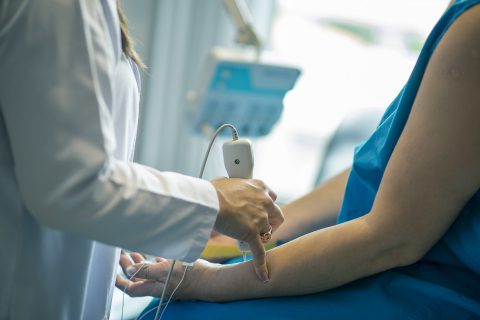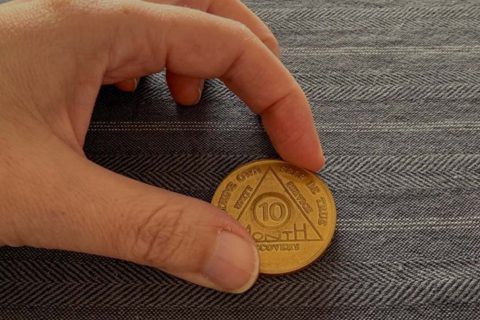Orange County Treatment Programs
Home »
The need for comprehensive addiction treatment in Orange County has never been greater. According to recent data from the American Medical Association, more than 107,000 drug-related deaths were reported in the US in 2021. Meanwhile, alcohol misuse continues to rise, with 1 in 5 Americans engaging in “heavy drinking” throughout the COVID-19 pandemic.
At Pacific Sands Recovery Center, there is hope. Fortunately, we provide the most comprehensive addiction treatment services for those grappling with substance use disorder. We also help those with attendant mental health disorders.
Working to ensure clients receive the best, most appropriate care for their needs, we proudly offer inpatient rehab, detox services, Medication-Assisted Treatment, 12-Step programming, as well as addiction therapy in Orange County.
Programs Offered at Our Orange County Recovery Center
Our inpatient rehab center in Orange County offers several levels of care and programming. As a client-centered recovery center, we are here to meet people where they are in their recovery.
Our client-centered programs include:
Detox
Detox is the first step in recovery. During detox, the body and mind will adjust to no longer having drugs or alcohol. As a result, people might have uncomfortable or painful withdrawal symptoms. In extreme cases, these symptoms can even be life-threatening.
Therefore, our medical detox team will be available 24/7. Our team can help clients manage withdrawal symptoms without complications. We will help clients deal with both physical and psychological symptoms that occur during detox. After that, they will be ready to dive into the root causes of their addiction.
Residential Addiction Treatment
Also known as inpatient rehab, residential addiction treatment at our Orange County recovery center immerses people in their treatment. That is to say, they will live in our center while going through their program. During inpatient rehab in Orange County, people are free from outside distractions so they can focus solely on themselves and their recovery.
Residential addiction treatment is best if they need time to make changes in their life without the risk of relapse from triggers in everyday life. Most clients remain in our residential program for 90 to 120 days for the best results.
Medication Assisted Treatment (MAT)
Medication assisted treatment (MAT) combines behavioral therapy with FDA-approved medications. Clients might first begin MAT during detox to help with withdrawal symptoms.
Additionally, alcohol and opioid addictions often result in the most challenging withdrawal symptoms. Therefore, MAT is usually best for these types of addictions. Moreover, clients can reduce the risk of relapse and accidental overdose with MAT.
12-Step Programming
A pillar of our recovery center is 12-Step programming. Throughout our various levels of care, we will use the principles of 12-Step recovery. As a result, people will be well-versed in 12-Step recovery upon leaving our program.
In short, we want to ensure they have the tools needed for lifelong recovery. By starting 12-Step programming with us, clients can become acquainted with peer support groups. These support groups are accessible and free of charge with proven records of success. While we focus on 12-Step recovery, we want to encourage them to pursue any type of peer recovery program that will work.
Addiction Therapy
Addiction therapy is available during our residential program. Therapy is effective at dealing with the underlying issues that cause addiction. For example, they might have anxiety during social situations and abuse alcohol to feel comfortable. Therefore, they can learn to manage their anxiety without alcohol to solve the underlying cause of alcohol addiction.
We provide both individual and group therapy. Some people feel comfortable sharing in a group setting, whereas others might be more reserved. However, many clients find a combination of both settings to be most effective.
Benefits of Attending an Orange County Recovery Center
Whether someone lives in the area or they’re from out of town, our inpatient rehab in Orange County offers many benefits. We hope to provide people with the best experience possible to get the results they deserve.
The following are the benefits of attending our inpatient rehab in Orange County:
- Safe from triggers and temptations of substance abuse
- Support from professionals as well as peers in recovery
- A more thorough understanding of their addiction
- Skills to prevent relapse
- Connection within the recovery community
- An opportunity to consider their addiction and its impact on their life
- Dual diagnosis treatment and psychotherapy
After their treatment, we encourage people to find aftercare services with 12-Step recovery or other support groups. In this way, they can continue to achieve goals in recovery with a sense of community. This reminds people they are not alone. Overall, we hope that our recovery center gives clients the skills and resources needed for a successful lifelong recovery.
Areas We Serve
We provide services for those living in and near Orange County. In addition, we welcome those looking for out-of-town recovery services for a change of scenery to start recovery. These are some of the areas in Southern California we serve:

Santa Ana
Learn More
Costa Mesa
Learn MoreAddiction Treatment at Our Orange County Recovery Center
The addiction treatments of Pacific Sands Recovery Center can help clients begin their recovery journey. We hope to inspire them to continue on a path to wellness long after leaving our facility. Visit our admissions page today to learn more.
Pacific Sands Recovery Center is dedicated to providing the best services for those struggling with addiction. As well, we help with any possible attendant mental health issues. We work as a team to makes sure they receive the appropriate care for their needs. Lastly, our inpatient rehab in Orange County features patient-centered care that addresses the causes of substance use. It imparts coping strategies to achieve life-long recovery.
Our Services
The services of our inpatient rehab program in Orange County, California provide support, stability, and accountability that are necessary in early sobriety. Our evidence-based treatment models help ease our clients into a life of sobriety in a safe and nurturing environment. We don’t use a one-size-fits-all approach. Our services are tailored to foster growth in sobriety to help people get and stay on the road to recovery.

Detox
Sobriety begins with detoxing from the substance or substances that are in your system to reach an abstinent state.
Learn More
Residential Treatment
Residential treatment provides 24/7 care, in a structured environment, that helps you develop the tools you need to maintain recovery.
Learn More
Medication-Assisted Treatment
Medication-Assisted Treatment (MAT) has been approved by the FDA to treat both opioid and alcohol use disorders.
Learn More
12-Step Programming
The 12-Step Program has been a hallmark of substance abuse programs for decades for a simple reason—it works.
Learn More
Addiction Therapies
We offer a range of evidence-based addiction therapy options to provide support for your recovery journey
Learn MoreAlcohol and Drug Abuse Services in Orange County, CA
The staff at Pacific Sands Recovery Center in Orange County, California are here to help answer your questions regarding our drug abuse and alcohol rehab services. If you or a loved one are in need of help, contact us today.
We understand what it’s like to struggle with addiction and mental health disorders, but we also understand what it’s like to recover. Visit our admissions page for more information about joining us at Pacific Sands.


